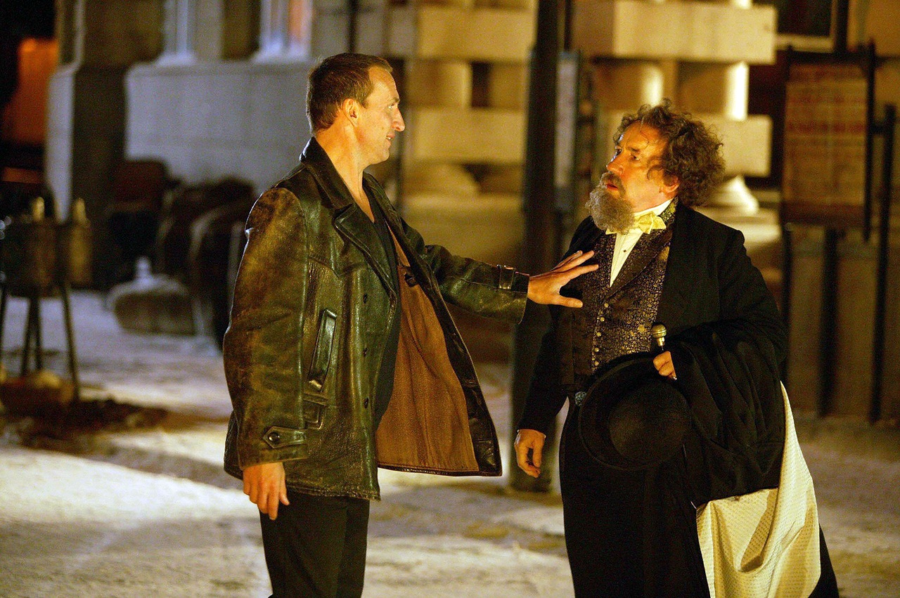Doctor Who Christmas Specials Saving Lives?

The Doctor has always been that rare sci-fi protagonist who’s more concerned with saving lives than taking them. His primary weapon isn’t even a weapon at all but a tool used mainly for finding non-violent solutions to problems the character is facing. So there’s a good chance The Doctor himself would be tickled pink to find out that the Doctor Who Christmas specials have been saving lives in the real world.
Doctor Who Christmas specials have been linked to lower death rates in the years that proceed them. A special Christmas edition of the BMJ, or British Medical Journal, featured a study that measured this unusual phenomenon. The study found that in years when Doctor Who released a special episode on Christmas day, there were at least six fewer deaths in the UK for every 10,000 people over the course of the following 12 months.

What’s more, the specials that aired between 2005 and 2017 saved one more person, showing seven fewer deaths per 10,000 people every year. The four Doctors during those years, Christopher Eccleston, David Tennant, Matt Smith, and Peter Capaldi, all deserve a round of applause, as do their companions.
A team from the University of Birmingham concluded that viewers “Watching a doctor who is caring for people,” might be more likely to seek care for their own medical needs. Ok, maybe they haven’t actually watched the show to know that he’s not a medical doctor, but there still could be some merit to their theory.

The first series of Doctor Who aired 60 years ago. Between 1963 and 2022, a new episode of Doctor Who was aired during the Holiday season 31 times, including 14 that were broadcast on December 25, Christmas Day itself. Of those 14 Christmas Day episodes, 13 of them aired in a row from 2005-2017.
While death rates have generally fallen over the course of the study period, the larger trend can’t be attributed to Doctor Who Christmas specials alone. Rather, the specials play their small, yet not insignificant, part by demonstrating the importance of seeing a doctor once fans are done watching The Doctor.

Unfortunately, modern-day Scrooge, Bob Phillips, a professor of pediatrics and evidence synthesis at the University of York, had to go and defecate on everyone’s Christmas cookies. “In reality, releasing a melange of sound and vision on a midwinter holiday could never truly change the mortality rate of a population,” said Phillips, objectively the least fun partygoer in the history of get-togethers. “This has to be a chance finding, drawn from luck or the clustering of episodes airing.”
Philip’s heart must have grown three sizes, however, because he added that it was perhaps, possibly, maybe, conceivable that Doctor Who may have “Inspired many people to make better choices and live better lives, both on-screen and off screen.”

Of course, nobody is saying that watching a Doctor Who Christmas special could cure somebody’s cancer or reverse their diabetes, but there is scientific evidence to back up the idea that thinking positively can have a positive effect on your health. The Doctor oozes positivity—it’s kind of their thing—and it’s bound to have rubbed off on some of the people tuning in for the Doctor Who Christmas episodes. Everyone loves a Christmas miracle, and what’s more miraculous than a flying police box that’s bigger on the inside?
Source: The Telegraph











